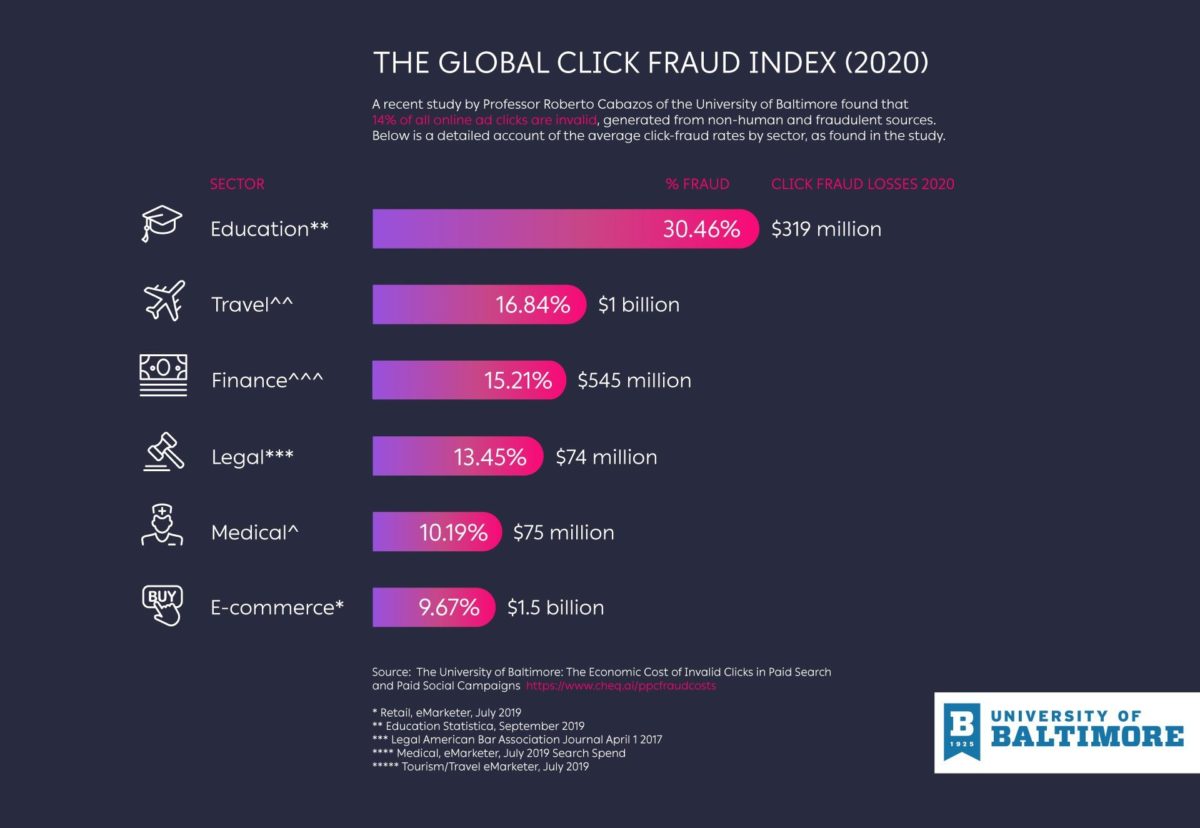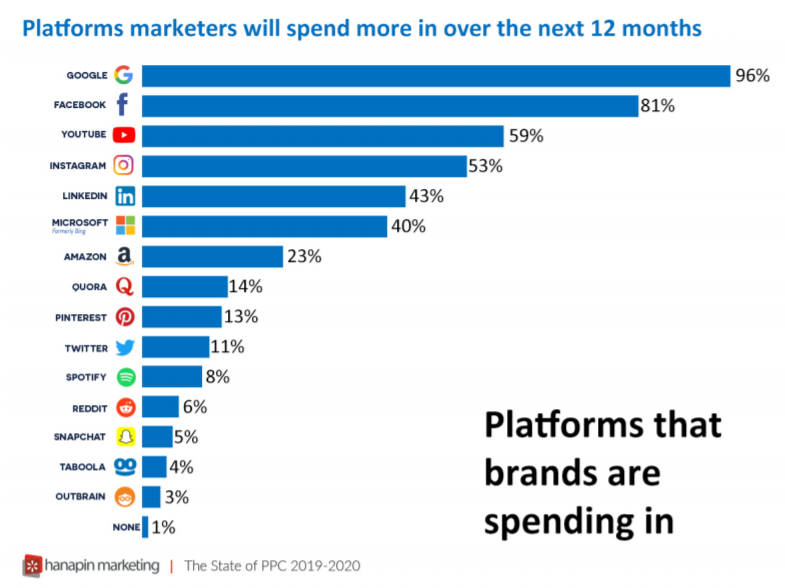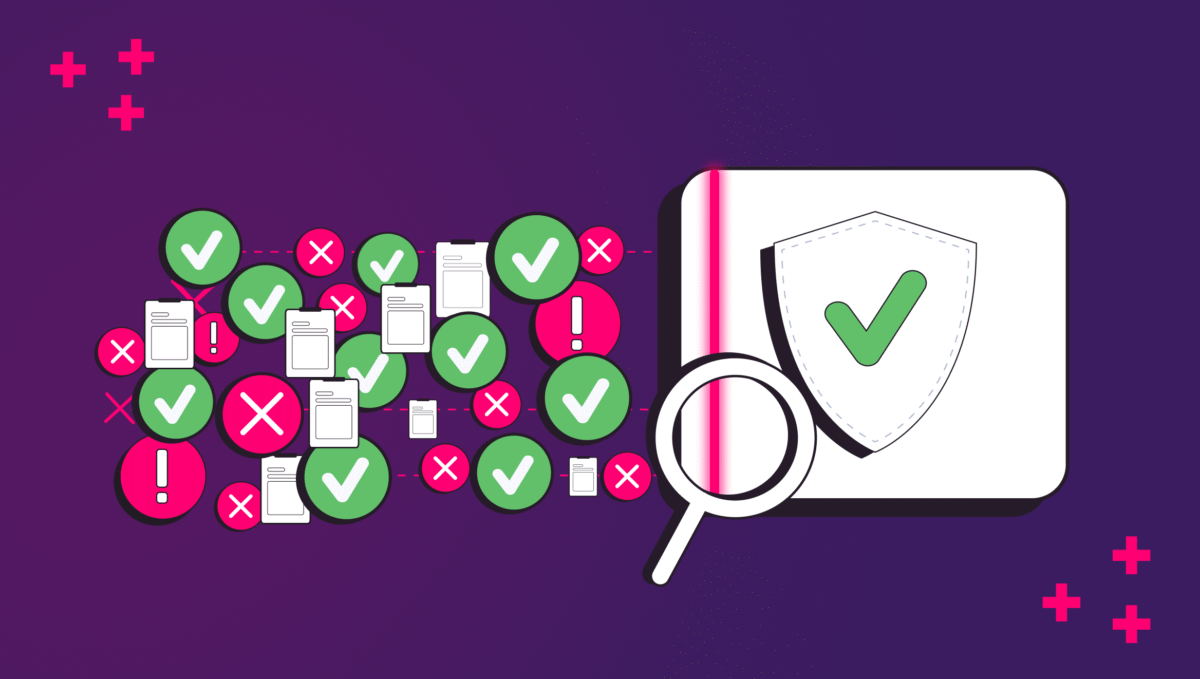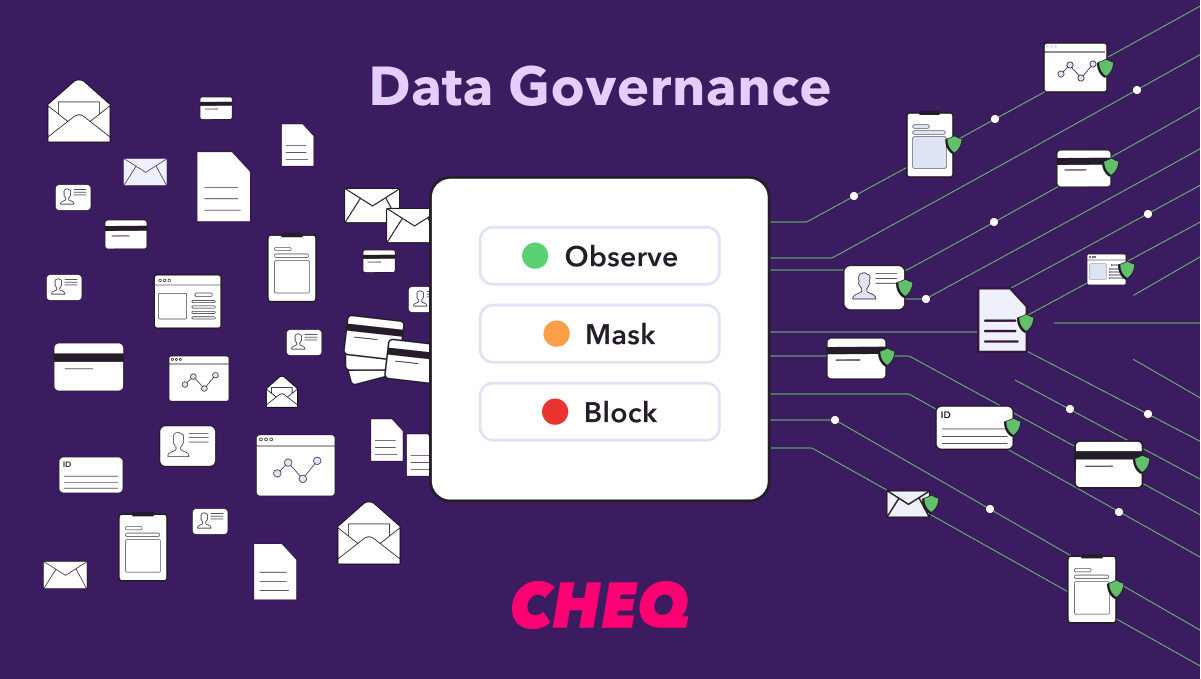PPC Click Fraud Research, Stats, Benchmarks and Index | CHEQ
Ankit Vora
|Marketing | April 30, 2020

In the past two decades, we have witnessed digitization take over and revolutionize the marketing industry.
Various traditional marketing tactics, such as TV advertisements and billboards, are fading away. Instead, businesses are reaching out to a wide range of consumers with the help of online advertising.
Pay-per-click (PPC) is one of the most powerful and customizable online advertising models.
In fact, such is its scale that $144 billion will be spent on paid social and paid search campaigns in 2020.
In particular, we have been witnessing a sharp rise in the budget allocation to Google Ads. Google Search revenues alone were worth $98 billion in 2019. At the same time, other platforms such as Amazon, LinkedIn, Instagram, and Pinterest have been attracting a rising rate of paid social spend targeting customers.
Rise of PPC Click Fraud
However, in every fast-growing market, rats emerge from the sewer. For PPC and social media spend this has taken the form of click fraud.
A major study shows for the first time that PPC marketing managers face a massive $23.7 Billion click fraud loss in 2020. The research from the University of Baltimore Business Department is the first academic study of its kind. Through economic analysis of industry data, interviews with PPC marketing leaders, and empirical research, the report reveals that PPC and paid social fraud will reach unprecedented losses by the end of 2020. The study finds that 14% of all clicks on your campaigns are invalid.
eCommerce campaigns are expected to lose $3.8 billion to PPC fraud in 2020, according to the study; travel, $2.6 billion; education, $ 830 million; legal, $ 193 million; and medical and health campaigns, $196 million.
What is click fraud?
Listed below are the four most common click-fraud sources:
- Webmasters
- Competitors
- Disgruntled Customers
- Bots
This may mean competitors are eating up your online advertisement budget by mass-clicking on your ads. It could be clicked by automated clicking tools, robots, or various other deceptive software like malware. Unsurprisingly, with bots singlehandedly accounting for nearly 45% of the overall web traffic, invalid clicks are so high for individual sectors.
The Industry Response
Pay-per-click networks have taken various proactive approaches to combat click fraud. For instance, Google AdWords has its own traffic quality center, which reimburses users who are subject to fraudulent clicks. On the paid social side Facebook, for instance, identifies “clicks generated through prohibited means, such as fake accounts, bots, scrapers, browser add-ons or other methods that don’t follow their terms.”
Fighting back against click fraud
However, the vast reservoir of spend remains a huge target for millions of fraudsters and hackers across the world, with techniques continually advancing. In the fight against this fast-growing problem, advertisers are determined to safeguard their budgets and remove fraud from campaigns. Thousands of companies are turning to solutions using AI and cybersecurity solutions to provide a more iron layer of protection to protect their growing PPC and social media spend.
Cybersecurity company CHEQ has launched the first cyber-driven platform for the elimination of fraudulent and invalid clicks across all PPC and paid social platforms. CHEQ for PPC is the first solution to block invalid clicks across platforms, including Google, as well as other platforms, including Facebook, alongside Amazon, Baidu, Bing, Facebook, LinkedIn, Snap, Twitter, Pinterest, Yahoo, and Yandex. This is a response to the fact that despite the various measures implemented until now, fraudsters have always managed to come up with new methods and ideas to evade detection.
Conclusion
The full extent of PPC and paid social fraud, again highlighted by this latest (and most detailed) study to date, has pushed CMOs and PPC experts to ramp up moves to cleanse their PPC campaigns of fraud. With billions of dollars lost on invalid clicks, marketers are seeking solutions to finally eliminate bots and bad actors. This will allow campaign managers to realize the full promise of PPC and social media platforms, reinvesting billions in wasted ad dollars away from fraud and towards converting real customers.
Want to learn how to prevent PPC click fraud? Click here to request a demo.







